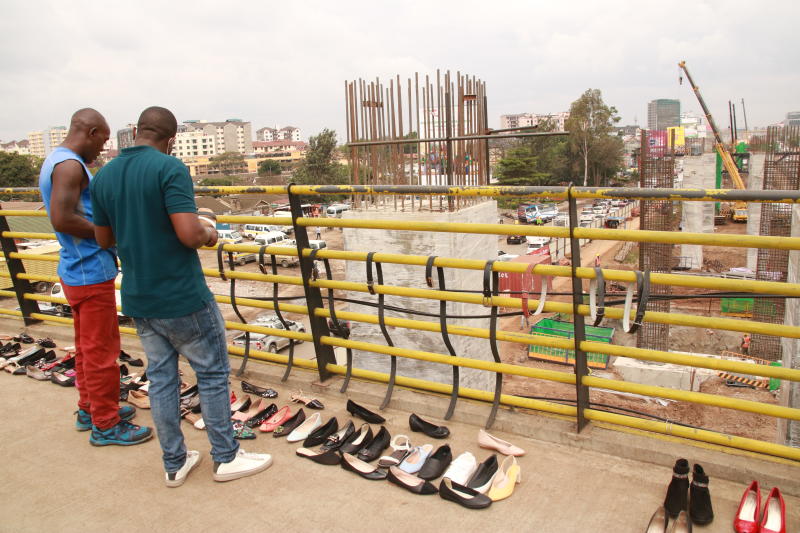×
The Standard e-Paper
Kenya’s Boldest Voice

Hawkers selling footwear on the footbridge near Bellevue, South C, Nairobi. [David Gichuru, Standard]
One of the major achievements of the Jubilee government is infrastructure development, particularly road networks around the country. Among these are the 27-kilometer Nairobi expressway which will cost the taxpayer Sh62 billion, and the Sh18 billion 170-kilometre Ahero-Kisii-Isebania road. All are nearing completion.